Turtles in the 1960s and 1970s were inexpensive, popular, and low maintenance pets, with an array of groovy pre-molded plastic housing designs to choose from. Invariably they would escape, only to be found days later behind the couch along with the skeleton of the class bunny my younger sister brought home from kindergarten one weekend.
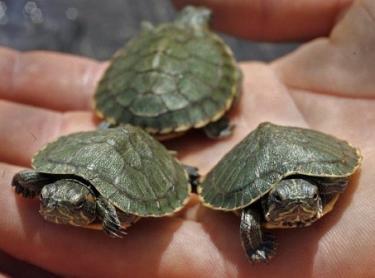 Maybe I got sick from my turtle.
Maybe I got sick from my turtle.
Maybe I picked up my turtle, rolled around on the carpet with it, pet it a bit, and then stuck my finger in my mouth. Maybe in my emotionally vacant adolescence I kissed my turtle. Who can remember?
The U.S. Centers for Disease Control reports there are now 124 confirmed cases of people, primarily kids, infected with outbreak strains of five different Salmonella outbreak strains in 27 states.
There’s a country-wide love for turtles in 2012, even though the U.S. Food and Drug Administration banned the sale and distribution of turtles less than 4 inches in size as pets since 1975.
Two new multistate outbreaks linked to small turtles have been identified since the prior update on April 5, 2012. Overall, 5 multistate outbreaks of human Salmonella infection are linked with exposure to small turtles. Results of the epidemiologic and environmental investigations indicate exposure to turtles or their environments (e.g., water from a turtle habitat) is the cause of these outbreaks.
• A total of 124 persons infected with outbreak strains of Salmonella Sandiego ( and B), Salmonella Pomona (A and B), and Salmonella Poona have been reported from 27 states.
• Small turtles (shell length less than 4 inches) were reported by 92% of cases.
• Forty-three percent of ill persons with small turtles reported purchasing the turtles from street vendors.
• 19 ill persons have been hospitalized, and no deaths have been reported.
• 67% of ill persons are children 10 years of age or younger.
 • Small turtles (shell length less than 4 inches) were reported by 93% of cases with turtle exposure. Forty-three percent of ill persons with small turtles reported purchasing the turtles from street vendors.
• Small turtles (shell length less than 4 inches) were reported by 93% of cases with turtle exposure. Forty-three percent of ill persons with small turtles reported purchasing the turtles from street vendors.
The number of ill persons identified in each state is as follows: Alaska (2), Alabama (1), Arizona (3), California (21), Colorado (5), Delaware (3), Georgia (3), Illinois (1), Indiana (1), Kentucky (1), Massachusetts (3), Maryland (6), Michigan (2), Minnesota (1), Nevada (4), New Jersey (7), New Mexico (3), New York (24), North Carolina (1), Ohio (2), Oregon (1), Pennsylvania (9), South Carolina (3), Texas (12), Virginia (3), Vermont (1), and West Virginia (1).
The complete update is available at http://www.cdc.gov/salmonella/small-turtles-03-12/index.html.
 According to the Detroit Free Press, a criminal complaint filed in U.S. District Court in Detroit said Kai Xu, a Canadian citizen, was trying to return to Windsor, Ontario, with the live reptiles tucked in baggies around his legs.
According to the Detroit Free Press, a criminal complaint filed in U.S. District Court in Detroit said Kai Xu, a Canadian citizen, was trying to return to Windsor, Ontario, with the live reptiles tucked in baggies around his legs.
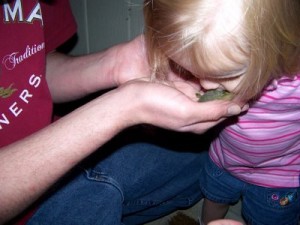

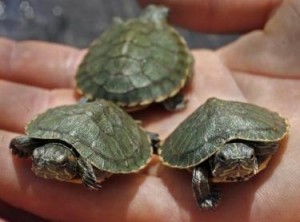
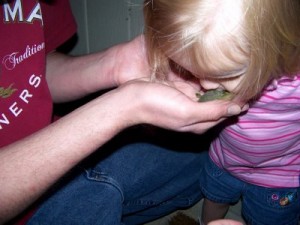
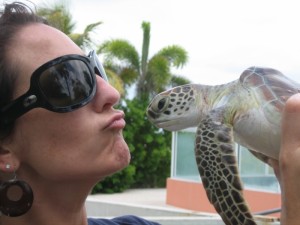

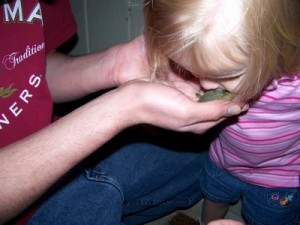
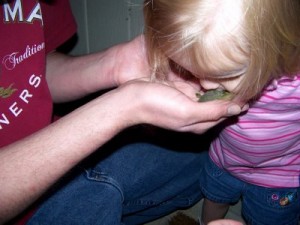
 Maybe I got sick from my turtle
Maybe I got sick from my turtle happen. Biology happens. “It’s not a deal, nor a test nor a love of something fated.”
happen. Biology happens. “It’s not a deal, nor a test nor a love of something fated.”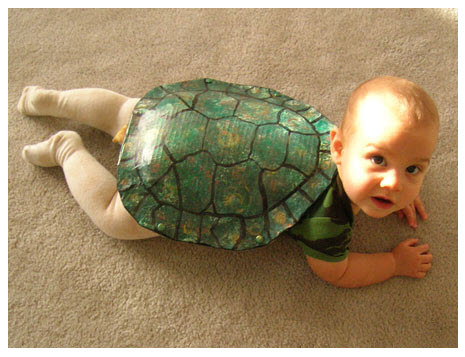 The U.S. Centers for Disease Control reports
The U.S. Centers for Disease Control reports And in sushi land
And in sushi land